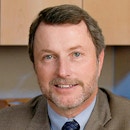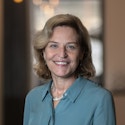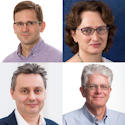By clicking to watch this video, you agree to our privacy policy.
On 26 February, David Amaral presented evidence supporting the concept that there are different types of altered brain development among children with autism.
His talk is part of SFARI’s Autism: Emerging Concepts lecture series. You can watch a complete video recording of the event above.
About the Lecture
Autism clearly involves altered function of the central nervous system, but the neuropathology of the disorder remains controversial. This is due in part to the enormous complexity of the disorder, with many possible causes and biological trajectories. What’s more, few neuroimaging studies involve young children or severely affected individuals. This lack of information is compounded by the fact that findings from magnetic resonance imaging cannot be confirmed and extended to the cellular level because of a lack of postmortem brains.




